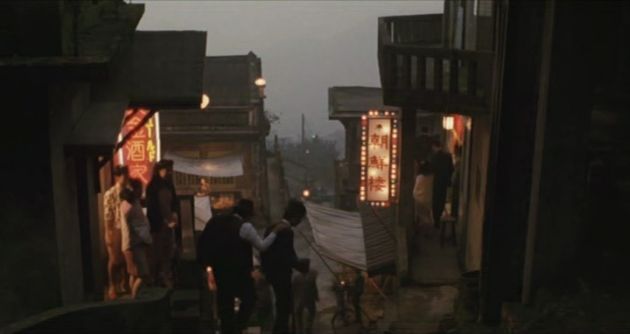
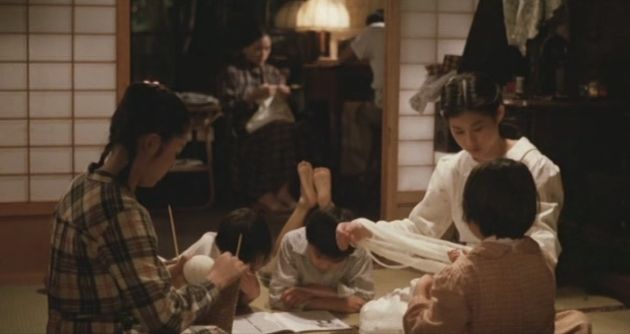
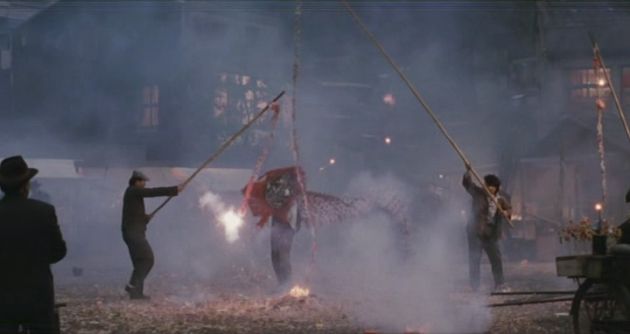
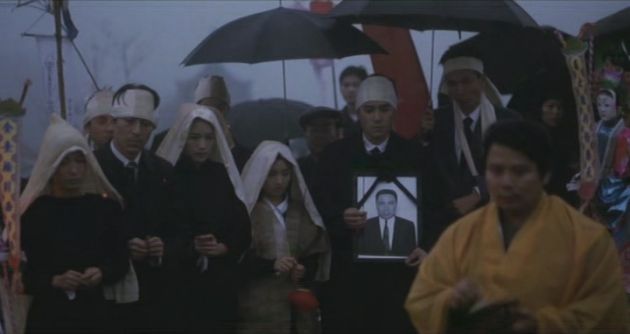
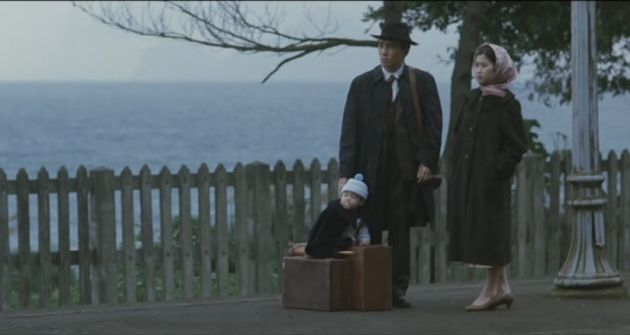
Hou quietly observes a prominent Lin family in a mountain town as it breaks apart during turbulent times in Taiwan after WWII. Handsomely photographed static interior shots accompanied by naturalistic performances, City of Sadness looks and feels like Ozu. Sung Young Chen is great as boisterous eldest son, so as Jack Kao as the middle child who suffers from PTD who were drafted to fight in a Japanese army and later is tortured by Kuomintang as a collaborator. Young Tony Leung also shines as the youngest, sensitive, deaf (because Leung couldn't speak Taiwanese, I found out, but it works him being as a slient witness) brother of the family. It's he and his long time family friend and later wife Hinomi (Xin Shu Fen) who bear witness to the changing times.
I had a very little knowledge of Taiwanese history going in City of Sadness: didn't know about their 51 year Japanese Occupation (compared to Korea being under 30 year occupation, and we still hold grudges) and the rather unique colonial past (as the first Japanese colony since 1894, taking cues from the Brits, the Japs governed them differently at first and to this day, I hear Taiwanese don't have too much adversarial feelings toward Japs as the rest of Asia do) , didn't know about their diverse ethnic groups, culture and languages, didn't know about Kuomintang's atrocities after the WWII against its own people. It is rather wrong to base your knowledge of a certain people's history solely on one mere film, but knowing Hou and his detached yet humanistic approach, I'd take his film over any dry history textbooks.
No comments:
Post a Comment